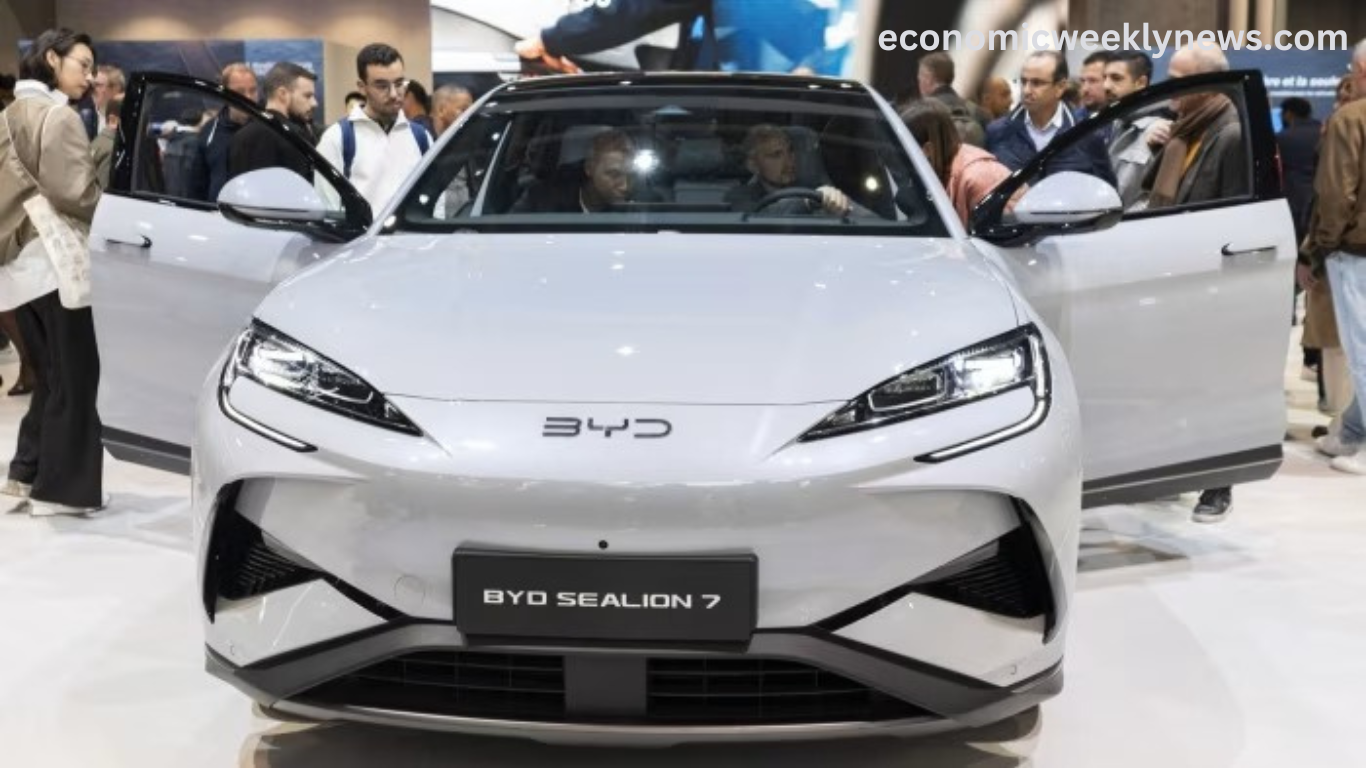Chinese automaker BYD has officially surpassed Tesla in electric vehicle (EV) sales, marking a significant shift in the global automotive landscape. The latest data reveals that BYD sold more battery electric vehicles (BEVs) than Tesla in the last quarter, solidifying its position as a dominant force in the EV market.
Strong Domestic Market and Government Support
BYD’s rapid growth can be attributed to its strong presence in China, the world’s largest EV market. The company benefits from extensive government incentives and subsidies and a well-established supply chain that enables cost-efficient production. Unlike Tesla, which primarily focuses on high-end vehicles, BYD has successfully captured a wider audience with affordable models catering to different consumer segments.
Diverse Product Line and Competitive Pricing
One of BYD’s major strengths lies in its diverse lineup of vehicles. The company produces not only fully electric cars but also plug-in hybrid models, offering consumers a range of options. With a pricing strategy that undercuts Tesla in key markets, BYD has gained a competitive edge, attracting price-sensitive buyers in both domestic and international markets.
Expansion Beyond China
While China remains BYD’s primary market, the company has aggressively expanded its footprint in Europe, Southeast Asia, and Latin America. Recent partnerships, factory investments, and international collaborations have allowed BYD to strengthen its global presence. In contrast, Tesla has faced challenges in scaling production outside its core markets, dealing with supply chain constraints and fluctuating demand.
Read More : Chinese Yuan Drops to 7.1788 per USD on Tuesday
Innovation and Battery Technology
BYD’s technological advancements, particularly in battery manufacturing, have played a crucial role in its success. The company produces its lithium iron phosphate (LFP) batteries, reducing reliance on external suppliers and ensuring a stable supply chain. This vertical integration provides a cost advantage over Tesla, which sources batteries from third-party manufacturers like Panasonic and CATL.
Challenges for Tesla and the EV Industry
Tesla, once the undisputed leader in EV sales, now faces increasing competition from Chinese automakers. While it still dominates in certain regions like North America, its pricing strategy, production costs, and brand positioning are being challenged. The broader EV industry is also experiencing shifts, with companies navigating supply chain issues, raw material price fluctuations, and evolving government policies.
Future Outlook
BYD’s momentum shows no signs of slowing down, with new models, international market expansion, and continued government backing fueling its growth. Tesla, on the other hand, is expected to respond with price adjustments, new product launches, and further innovation in battery technology. The global EV landscape is rapidly evolving, and competition will only intensify as automakers race to capture market share in the booming industry.
Frequently Asked Questions
How did BYD surpass Tesla in sales?
BYD overtook Tesla by leveraging its strong domestic market in China, competitive pricing, and a diverse lineup of electric and plug-in hybrid vehicles.
What types of EVs does BYD produce?
BYD manufactures both battery electric vehicles (BEVs) and plug-in hybrid electric vehicles (PHEVs), catering to a broad consumer base.
What advantages does BYD have over Tesla?
BYD benefits from lower production costs, government subsidies, in-house battery manufacturing, and a strong distribution network in China and beyond.
Is BYD expanding outside China?
Yes, BYD is aggressively expanding into markets such as Europe, Southeast Asia, and Latin America, challenging Tesla’s global presence.
What role does battery technology play in BYD’s success?
BYD produces its own lithium iron phosphate (LFP) batteries, reducing reliance on external suppliers and keeping production costs low.
How is Tesla responding to BYD’s growth?
Tesla is adjusting pricing strategies, ramping up production, and focusing on new innovations to maintain its competitive edge.
Does BYD have plans to enter the U.S. market?
While BYD is expanding globally, entering the U.S. market remains challenging due to tariffs and regulatory restrictions.
Will Tesla regain its top position in EV sales?
Tesla remains a strong player, but with increasing competition from BYD and other automakers, the EV market is becoming more unpredictable.
Conclusion
BYD’s rise to the top of the EV market signals a major shift in the automotive industry. With a focus on affordability, innovation, and market expansion, it has successfully outpaced Tesla in sales. As competition intensifies, both companies will continue pushing technological advancements and strategic moves to dominate the sector. The future of the EV industry remains dynamic, with new players and innovations shaping the global landscape.

